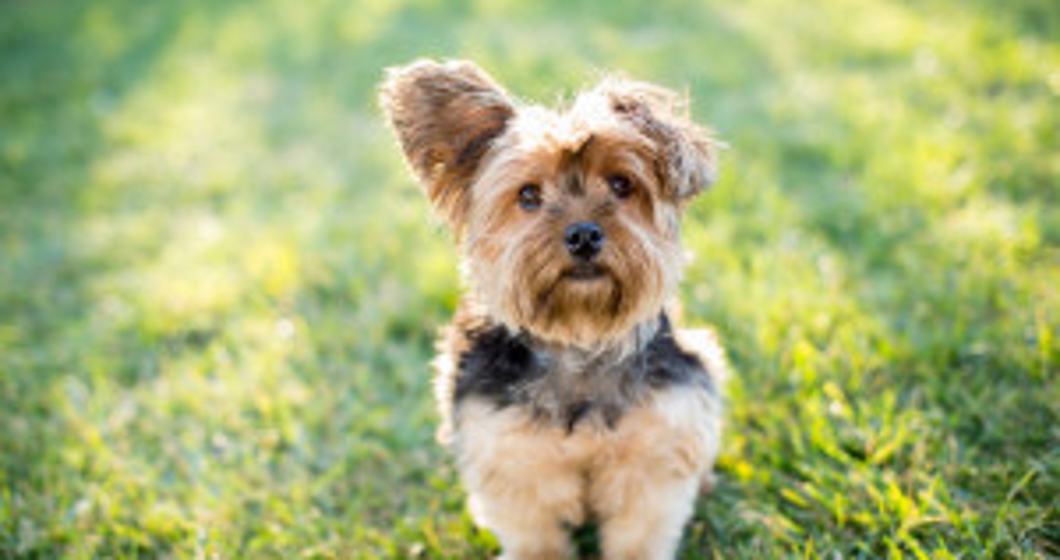As dog lovers in East Tennessee, we know how much our four-legged companions mean to us. They're not just pets—they're family. So it's no surprise that we go above and beyond to keep them happy and healthy. But did you know that some of the most common plants around your home—both indoors and in your backyard—can be toxic to dogs?
Whether you're a new pet parent or a long-time dog owner, it's essential to know which plants could put your pup at risk. In this blog, we’ll break down which indoor and outdoor plants are harmful to dogs, which ones to avoid altogether, and how East Tennessee pet owners can create a safe and dog-friendly environment.
Common outdoor plants that are toxic to dogs in East Tennessee
East Tennessee is known for its lush greenery and beautiful landscapes. While that’s something to celebrate, it also means there are a lot of plants that could be harmful if your dog decides to nibble on them.
Here are some common outdoor plants that are toxic to dogs:
Azaleas and rhododendrons – These popular flowering shrubs are toxic to dogs. Even small amounts can cause vomiting, diarrhea, and in severe cases, cardiac failure.
Oleander – Not native but often used in landscaping, oleander is extremely toxic and can lead to serious heart problems if ingested.
Foxglove – This beautiful, tall flower is dangerous for pets. It contains compounds that affect the heart.
Autumn crocus – While lovely in the fall, this plant is highly toxic and can cause gastrointestinal bleeding, liver and kidney damage, and respiratory failure.
Sago palm – Though more common in warmer climates, sago palms can sometimes be found indoors or in planters. Every part of this plant is toxic, especially the seeds.
For East Tennessee dog owners who enjoy gardening or landscaping, it’s worth double-checking that your outdoor plants are pet-safe. A well-meaning addition to your yard could cause a serious health issue for your furry friend.
Houseplants to avoid if you have dogs
Indoor plants bring life and freshness into your home, especially during East Tennessee’s colder months when we’re spending more time inside. But not all houseplants are dog-friendly.
Here are some to avoid:
Peace lilies – A popular indoor plant, but very dangerous for dogs. Ingestion can cause oral irritation, vomiting, and difficulty swallowing.
Philodendrons and pothos – Easy to grow, but not safe for pets. They contain calcium oxalate crystals that can irritate your dog’s mouth and digestive tract.
Dieffenbachia (also called dumb cane) – Known for its big green leaves, this plant is toxic to dogs and can cause swelling of the mouth, difficulty breathing, and vomiting.
Snake plant (mother-in-law’s tongue) – A hardy houseplant, but mildly toxic. It can lead to nausea, vomiting, and diarrhea.
Aloe vera – While great for human skin, it’s not so great for dogs. It can cause gastrointestinal distress if eaten.
East Tennessee pet parents who love decorating with greenery should consider replacing toxic houseplants with safer options like spider plants, areca palms, or prayer plants.
How to keep your dog safe from harmful plants
It’s one thing to know which plants to avoid—but how do you protect your pup in day-to-day life?
Here are some practical tips for East Tennessee dog owners:
Know what’s in your yard and home
Do a walkthrough of your property and home, especially if you’ve recently moved or adopted a new dog. Use a plant identification app or consult a vet if you’re unsure about a particular plant.
Train your dog to avoid plants
Basic training like “leave it” or “no” can be surprisingly effective when it comes to plant safety. The earlier you start, the better.
Fence off garden areas
If you have a garden or flowerbed with questionable plants, install fencing or create barriers to keep your dog out.
Keep houseplants out of reach
Place plants on high shelves, hang them in baskets, or use rooms that are off-limits to your dog.
Use raised beds or containers outdoors
Elevated planters can help prevent your dog from accessing harmful plants and also make for a neater landscape.
Talk to your vet
Your local East Tennessee vet is a great resource. If your dog has a habit of chewing on plants, ask your vet for advice and a list of safe alternatives.
What to do if your dog eats a toxic plant
Accidents happen. If you suspect your dog has eaten a harmful plant:
Call your veterinarian or the ASPCA Animal Poison Control Center at (888) 426-4435 immediately.
Try to identify the plant your dog ingested.
Don’t try home remedies unless advised by a professional.
Time is critical in these situations, so act quickly.
Final thoughts for East Tennessee pet owners
Living in East Tennessee means enjoying nature—and that includes sharing it with our dogs. With a little preparation and knowledge, you can keep your home and yard both beautiful and safe for your furry family members.
At DoodyCalls of East Tennessee, we know the love and effort that goes into raising a happy, healthy dog. That’s why we’re here to support you with pet waste removal and pet-friendly yard care. After all, a clean and safe yard is just one more way to show your pup how much they’re loved.
Need help keeping your yard safe and clean for your dog? Contact DoodyCalls of East Tennessee today!


